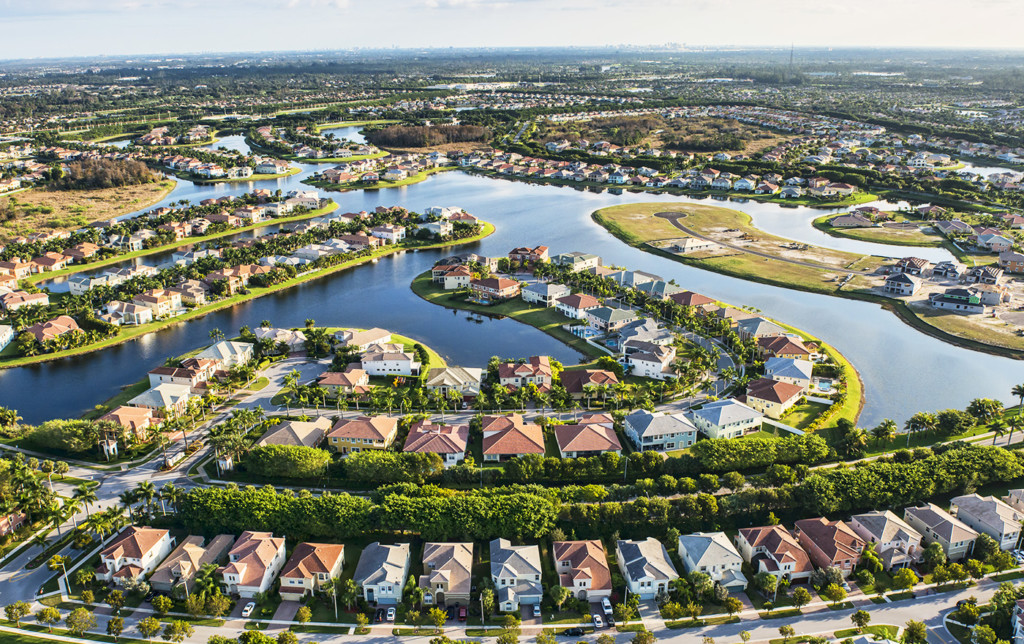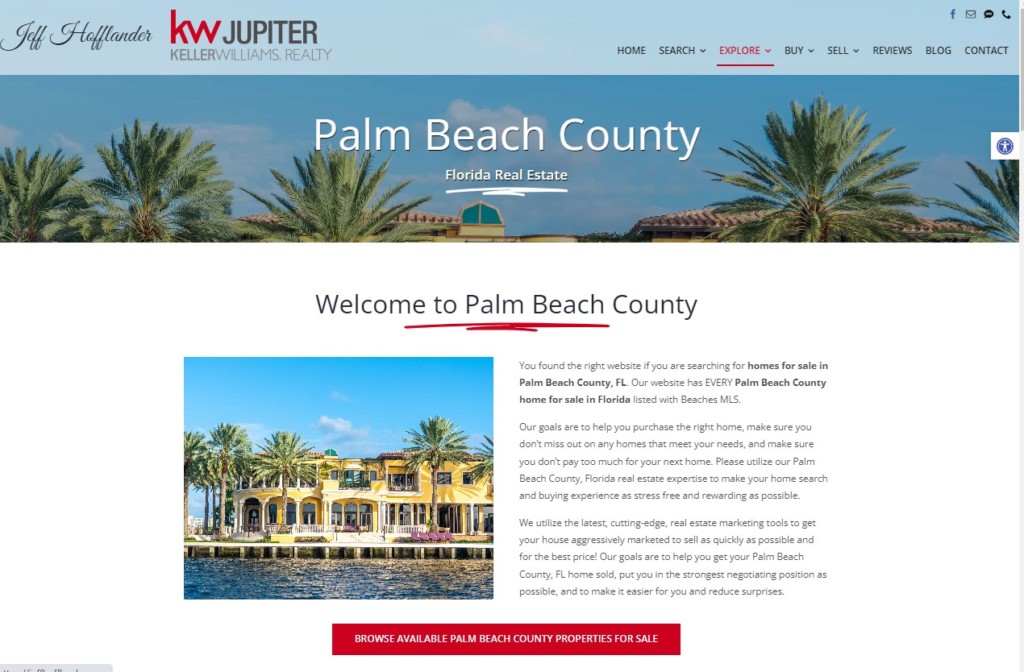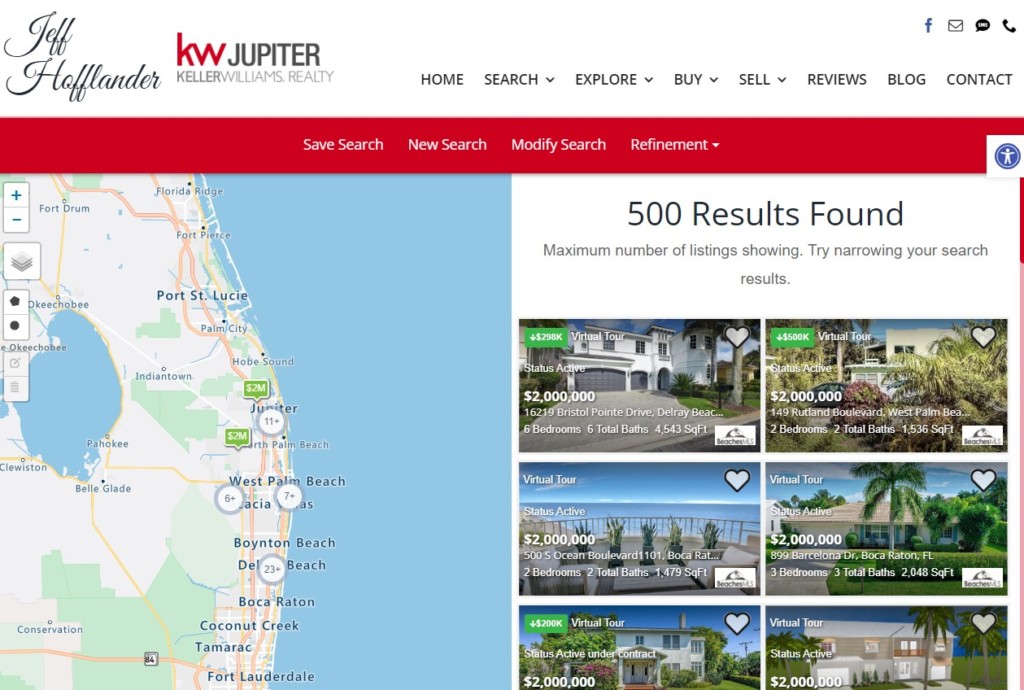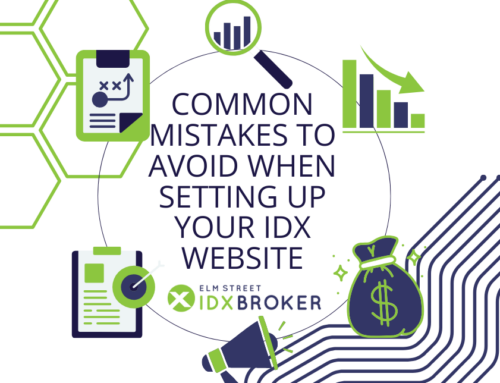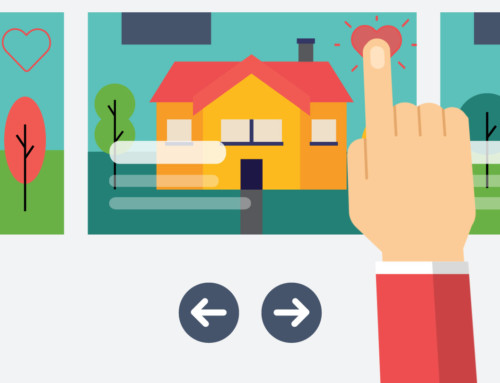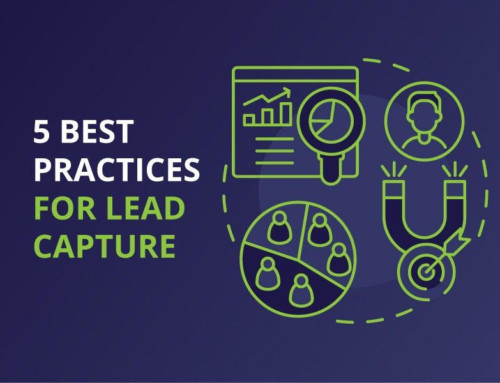When people buy a home they start by finding the right community. Adding robust, detailed information in the form of a community page on your real estate website can be a great place to help active clients find the perfect home based on their needs, interests and lifestyles.
If you have an IDX Broker account, you can easily create a community page and incorporate search tools and supplemental information, images, and third-party data that is optimized for search engines.
We recommend these best practices and watching our recent recorded webinar Content is King to get started today.
Creating a Community Page
Let’s say you are a Realtor® in Florida and waterfront homes are of particular interest to your client base. Adding a community page that specifically showcases waterfront properties on your real estate website will help highlight and organize these MLS listings as well as increase the probability someone will find the same information through a Google search.
However, creating the waterfront property community page first requires you to add the MLS “waterfront” field in the advanced search settings within your IDX Broker account. Once the field has been added, you’ll create a saved link using a descriptive title that matches the intent of the page–Waterfront Homes for Sale, for example.
You’ll also want to add a meta tag description and other relevant keywords; both of these best practices help search engines know what your page is about (also known as SEO). If you just have a landing page that is populated with a table-style list of links to saved search results, it may be useful to the client, but the chances of them finding your site through an organic search are much lower.
Better yet, further break down your market area based on specific cities, subdivisions, postal codes, golf course homes, gated communities, new listings, etc. If you use WordPress for your CMS, you can automatically add saved links using IMPress shortcodes.
Add Supporting Content and Long-Tail Keywords
Before publishing the new community page on your website, you’ll want to add additional (sometimes referred to as supporting) content to the page and incorporate long-tail keywords or key phrases that are more specific and usually longer than the keywords you are trying to rank for in an organic search. Because they are more specific to the search, long-tail keywords are highly-effective in the real estate sector because they connect the searcher with properties that more closely match their specific search criteria.
Simply put, if you don’t add meta descriptions, keywords, and additional content to your community pages (and only publish saved search code), Google won’t know what the page is about and, as a result, won’t suggest it in a search result page.
In this example, notice several paragraphs of original, detailed, information about living in the Palm Beach County community accompanied by visually compelling photographs that showcase the benefits of owning a home in that part of Florida.
At the bottom of the page, the Realtor® has added a widget titled “Newly Available Palm Beach Properties” that pulls MLS feed data for properties that match the saved search criteria filtered by price and days on the market.
Add Even More Content and Widgets
An effective content strategy when creating community pages is to break down your market area based on the major subdivisions in a city and then the houses available within that region from horse farms to new construction, golf course homes, etc. Support those community pages with micro blog posts for each individual subject area. In addition to organic search, having community pages and micro blog posts gives you a link for sharing across your social media channels.
For example, the Whiteaker neighborhood in Eugene, Oregon is located on the Willamette River with easy access to the water for paddle boarding, kayaking, or river floats in the summer months. Paved river trails are popular for running, biking, and walking all year long and lead into the arts district, farmers markets, restaurants, and music venues and all make great supplemental microblog posts.
Adding third-party data from review sites like Yelp and GreatSchools in addition to IDX Broker widgets like Market Reports, and carousels with dynamic listing data will greatly augment the site credibility and usefulness and increase the overall time spent searching properties on your website.
You can also add community news to your website that’s unrelated to real estate, but relevant to living or visiting the region. For instance, if a popular band is coming to town, move that information into a blog post or community calendar page. Statistically speaking, eight percent of the people finding about the concert through your site are zero to six months away from buying or selling a house.
Once on your website, they may decide to look at properties and listings and become a valuable lead. Announcing information about new real estate developments or industry news can help with Google indexing and authority, as well as receive additional inbound traffic from other websites adding links pointing directly back to that page.
In addition to promoting featured listings, topics like current marketing conditions, the history of a neighborhood, local businesses, interest rates and information designed to assist buyers and sellers (home buying tips, market reports, crime stats) with a real estate transition are all relevant material worth posting.
Hire an IDX Broker Developer Partner
If setting up saved searches and community pages on your real estate website sounds appealing to you, but you don’t have the bandwidth to set everything up, consider working with IDX Broker Developer Partner like CJ Hays, Marketing Director at Agent Reputation.
For more information on optimizing your real estate website using community pages, saved searches, duplicate content, micro blogging, and other essential digital marketing practices, watch the Content is King recorded webinar through the Elm Street Technology on-demand educational academy.

